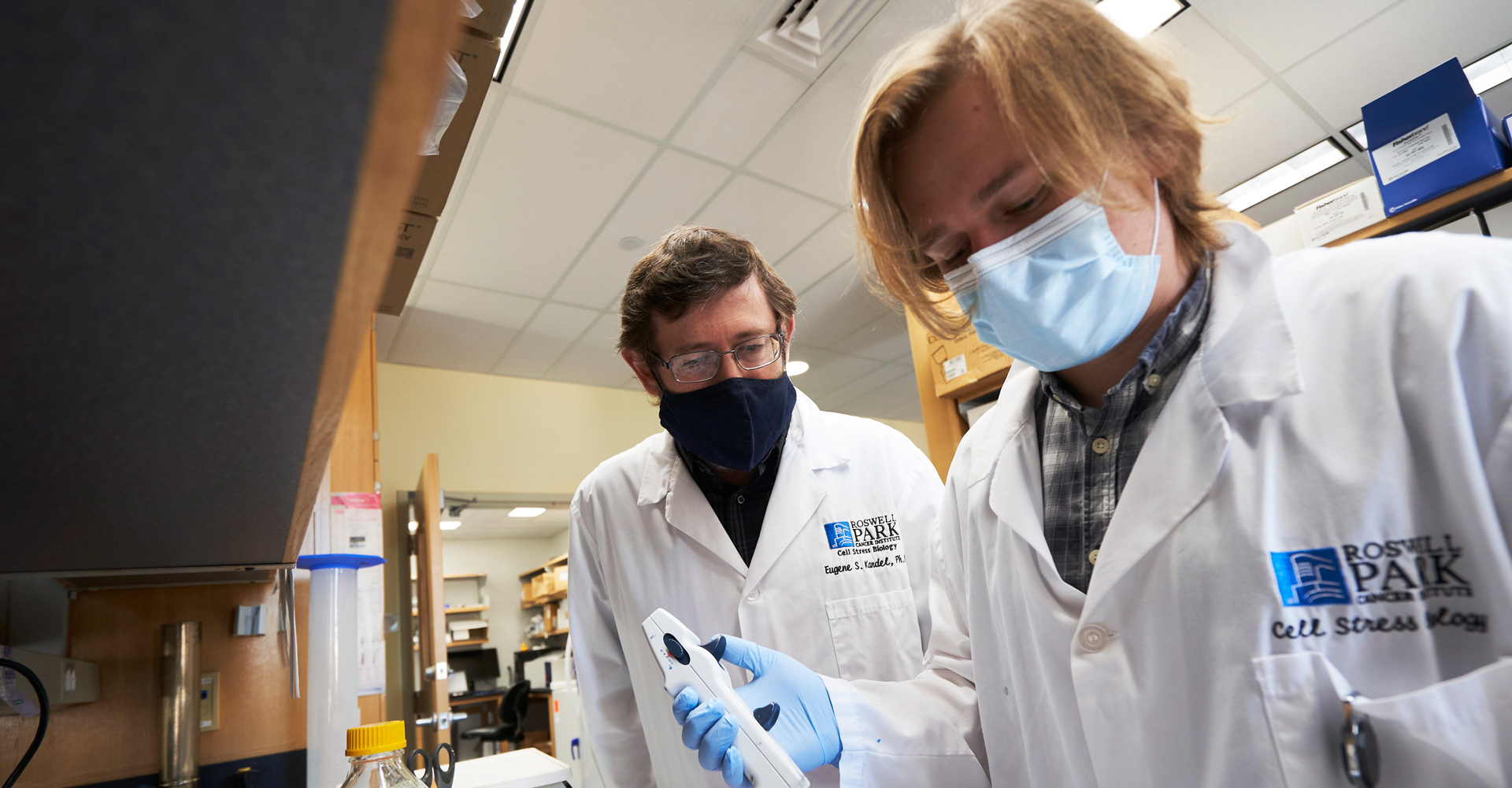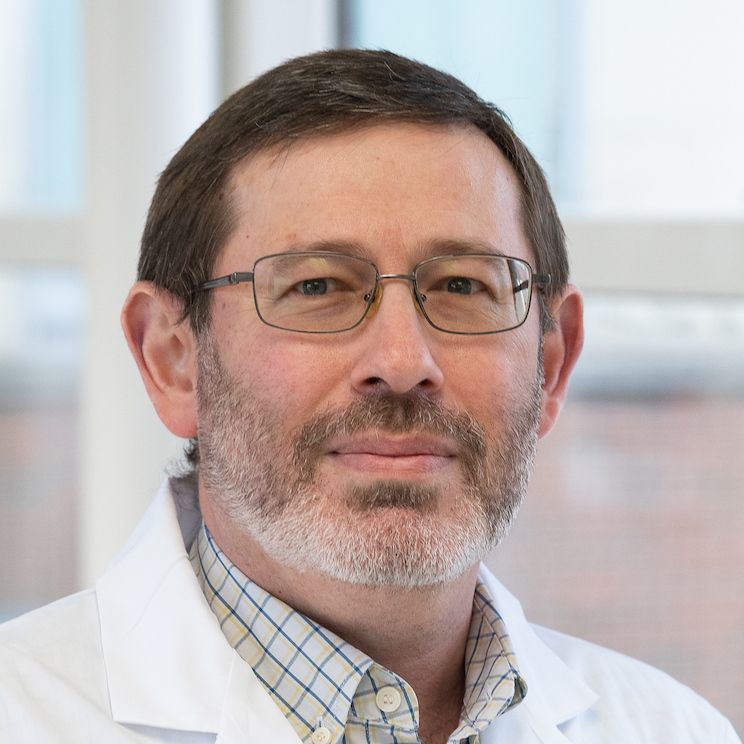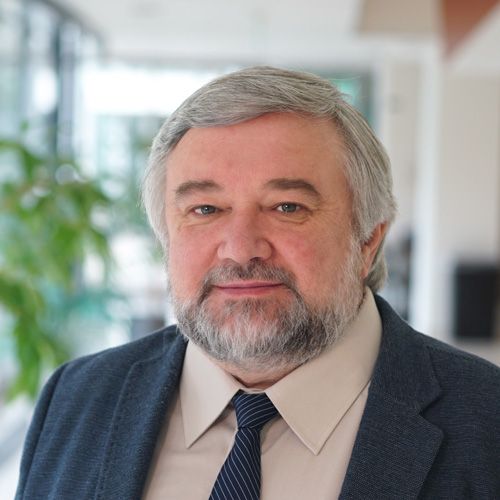Understanding cell stress in clinical cancer therapies
Decipher stress response pathways in normal and malignant cells. Use your knowledge of biology, physics and chemistry to develop and improve the ways to prevent, diagnose and treat cancer. Work with physicians and industrial scientists to bring your discoveries to the clinics.
When you choose the Cell Stress and Biophysical Oncology PhD Track, you’ll be part of a unique multidisciplinary training and research environment. We’re built on synergy between biophysicists, chemists, engineers, molecular biologists and physicians.
In addition to mentored research, you’ll have stimulating course work, seminars with presentations by trainees and invited speakers, and various informal scientific and social events.
We’re looking for candidates with diverse academic backgrounds (biology, chemistry, physics, engineering, etc.) and an enthusiasm for collaboration.
Research areas
- Biochemical and genetic investigation of stress-response pathways in normal and cancer cells
- In vivo and in vitro imaging technologies
- Photodynamic therapy and photobiology
- Molecular mechanisms of carcinogenesis
- Discovery of anti-cancer drugs
- Radiation biology and medical physics
- Molecular mechanisms of longevity and aging
- Membrane biophysics
- Drug delivery and pharmacodynamics
- Metabonomics/metabolomics and proteomics
- Structural biology
Additional information about our research can be found on our individual faculty page.
The faculty and staff are central to the Cell Stress Biology Biophysical program’s strength. They set the tone for scientific excellence and professional rigor along with a friendly and collaborative atmosphere for students. This makes science fun and creates an environment in which you can thrive professionally. Students are empowered to be involved in the Department's development from improving the curriculum to help with recruiting new students. Student concerns are addressed and opinions matter.Archis Bagati, PhD, Class of 2016
Typical program of study
Fall semester (19 credits)
Course Code | Course Name | Credits |
|---|---|---|
RPG 501LEC | Integrated Cancer Sciences I | 4 |
RPG 502LEC | Integrated Cancer Sciences II | 4 |
RPG 519LLB | Biostatistics for Cancer Sci | 4 |
RPG 504SEM | Responsible Conduct of Research | 1 |
RPG 601SEM | Journal Club - First Year | 2 |
RPG 514TUT | Independent Study | 1-12 |
Spring semester (19 credits)
Course Code | Course Name | Credits |
|---|---|---|
RPG 503LEC | Integrated Cancer Sciences III | 4 |
RPG 543LEC | Tools & Models for Molecular Oncology | 4 |
RPG 545SEM | Cell Stress & Biophysical Oncology Journal Club | 2 |
RPG 606TUT | Doctoral Lab Rotation | 1-12 |
Electives — to 19 total credit hours |
|
Fall semester (19 credits)
Course Code | Course Name | Credits |
|---|---|---|
RPG 533LEC | Biophysical and Biochemical Techniques in Oncology | 4 |
RPG 545SEM | Cell Stress & Biophysical Oncology Journal Club | 2 |
RPG 603SEM | Basic Grantsmanship | 2 |
RPG 608TUT | Doctoral Research | 1-12 |
Electives — to 19 total credit hours |
Spring semester (9 credits)
Course Code | Course Name | Credits |
|---|---|---|
RPG 608TUT | Doctoral Research | 1-12 |
RPG 545SEM | Cell Stress Biophysics Oncology Journal Club | 2 |
Electives — to 9 total credit hours |
Preliminary examination held over the summer.
Course Code | Course Name | Credits |
|---|---|---|
RPG 608TUT | Doctoral Research | 1-12 |
| Cell Stress & Biophysical Oncology Journal Club (no registration required) |
|
If you wish to apply after the deadline, please contact GradEd@RoswellPark.org before submitting an application.
Contact information
For more information on the Cell Stress and Biophysical Oncology Ph.D. Track at Roswell Park, connect with:
Xin Chen, Track Administrator
Xin.Chen@RoswellPark.org
ph: 716-845-3906
fax:716-845-3944
Mail to:
Cell Stress and Biophysical Oncology Track
Roswell Park Graduate Division
Attn: Xin Chen
Roswell Park Comprehensive Cancer Center
Elm and Carlton Streets
Buffalo, New York 14263


